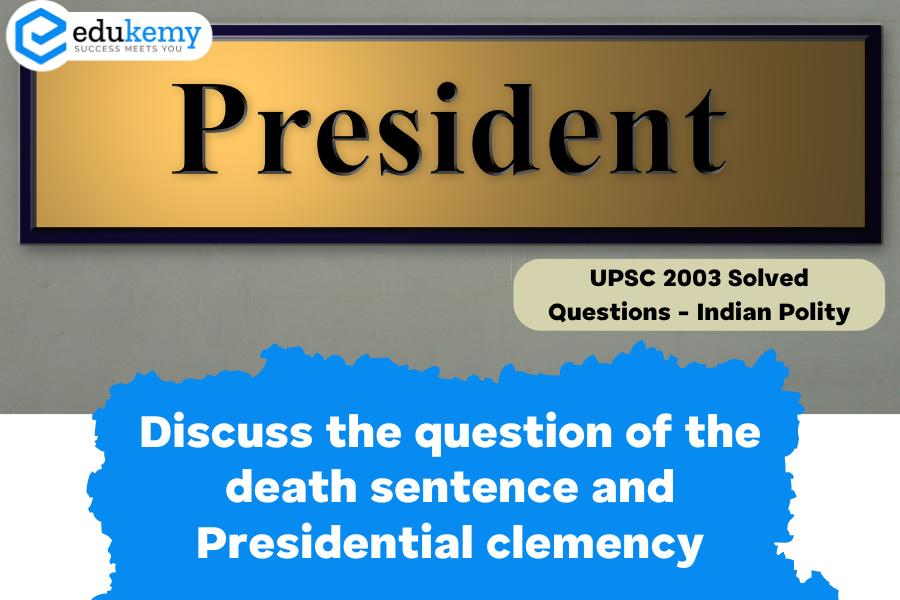
Article 72 (1)(c) of the Constitution empowers the President to grant pardons, reprieves, respites, or remission of punishment, as well as to suspend, remit, or commute the sentence of any individual convicted of an offence punishable by death. Specifically, the President holds exclusive authority to grant pardon in cases where the imposed sentence is death.
Over the years, the Supreme Court has introduced significant modifications to the President’s pardoning power. In the Bachan Singh Case (1983), the court determined that while the imposition of the death penalty did not contravene Articles 14 or 21 of the Constitution, it should be reserved for the ‘rarest of rare‘ cases. The Kehar Singh Case (1989) further affirmed that the President, under Article 72, has the prerogative to scrutinize the evidence on record and make decisions regarding the sentence. This includes the President’s entitlement to delve into the merits of a case, even if it has already been judicially concluded by the Supreme Court. The court in this instance established that the President could even choose to hear the convict orally.
However, a landmark decision by the Supreme Court in 2001 regarding Presidential Clemency stipulated that considerations such as caste, religion, and political loyalty should not influence decisions on clemency. Subsequently, in 2006, the Supreme Court asserted that the power of Presidential and Gubernatorial Pardon is subject to judicial review and cannot be dispensed with incompletely.

Contents
In case you still have your doubts, contact us on 9811333901.
For UPSC Prelims Resources, Click here
For Daily Updates and Study Material:
Join our Telegram Channel – Edukemy for IAS
- 1. Learn through Videos – here
- 2. Be Exam Ready by Practicing Daily MCQs – here
- 3. Daily Newsletter – Get all your Current Affairs Covered – here
- 4. Mains Answer Writing Practice – here

